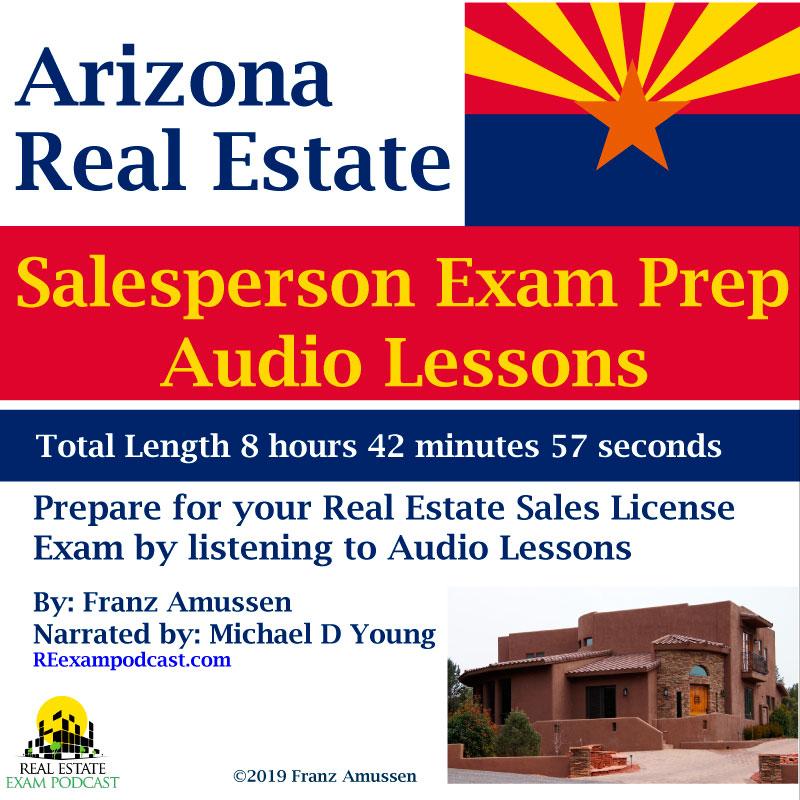Podcast: Play in new window | Download (Duration: 26:27 — 12.2MB)
Subscribe: Apple Podcasts | Email | RSS | More
Here is the 2021 Arizona Real Estate Salesperson Exam Lesson 5: Real Estate Economics
2021 Arizona Real Estate Salesperson Exam Lesson 5: Real Estate Economics
Here is a free lesson for the 2021 Arizona Real Estate Salesperson Exam Lesson 5 . The full series of lessons is available at the Website
Real Estate Economics
Supply = how much of a product or service is available
Demand = how much of a product people want
If supply increases, price decreases.
If demand increases, price increases.
Market equilibrium: when supply and demand are balanced.
Economic Characteristics of Real Estate
• It is governed by supply, demand.
• It has durability
• Heterogeneity
• High Transaction costs
• Long time delays
• Both an investment good and an consumption good.
• Immobility
• It has inherent value
• It has unique appeal
• It is illiquid
• It has a slow response to cycles
• The market is decentralized
• Depreciation vs. Appreciation
• Strait-Line (Cost – salvage value)/Useful life
• Double Declining Balance = Beginning book value x Rate of depreciation
• Units of Production (Not used in real estate)
• Sum of Years Digits (Remaining life/Sum of the year’s digits) x (Cost – Salvage Value)
• Demographics affect demand.
• Types of demographics
• Population size/growth
• Family size
• Age and Family makeup
• Death rates
• Marriage and Divorce rates
• Housing supply is produced using land, labor, and materials. The supply is determined by the cost of those materials, the price of existing houses, and the technology that produces them.


